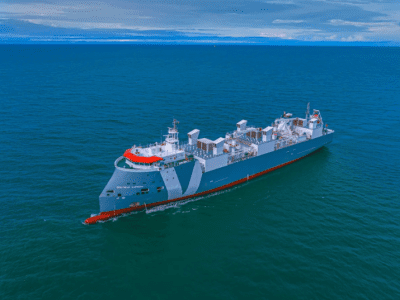Amid a difficult trading environment for Australia’s export cattle trade to Southeast Asia, an Australian exporting company has successfully assembled a shipment made up entirely of bulls to be exported from Townsville to Vietnam this week.
 The shipment follows the history-making boat load of 14,000 light slaughter bulls exported from Brazil to Vietnam in August/September.
The shipment follows the history-making boat load of 14,000 light slaughter bulls exported from Brazil to Vietnam in August/September.
It is also understood to be the first shipment made up entirely of bulls to be shipped from the Port of Townsville.
Bulls are a preferred option of many lot feeders in Vietnam for their natural high growth rates, lean high yielding carcase, and darker meat colour.
Past shipments from Townsville have often contained a mix of steers and some bulls, but this is believed to be the first comprised entirely of entire males.
Current market dynamics have opened a differential between the price of steers and bulls, with bulls currently more attractively priced for importers, but still at price levels appealing to producers with bulls to sell.
Finding enough bulls to fill the shipment was a challenge in the current tight supply environment, said Dave Henry, Townsville-based buyer for the export company involved, Frontier International.
However, a total of 2100 slaughter-ready bulls were able to be procured to load in Townsville this week aboard the Greyman Express.
Mr Henry said the consignment contains mixed age Brahman and Brahman cross bulls.
Some are older retired herd bulls aged eight age years or younger, while others are young stud bulls that were not able to be sold at bull sales, for reasons such as failing semen tests.
The consignment was sourced primarily out of Central and Northern Queensland, Mr Henry said.
“There were a fair few bulls that had been put away onto feed, they had been hoping for an export boat to come along, or for opportune fattening to put them through the meatworks,” Mr Henry said.
“A lot of the bulls have obviously in that previous life had access to feed, so they do take to the feed pretty well.”
It is understood the bulls had an average weight of around 600kg.
The vessel is the first to load cattle in Townsville for more than two months.
A combination of factors including high Australian cattle prices, COVID impacts on demand in export markets and competition from Brazilian bulls in Vietnam have resulted in shipping activity from northern Australia slowing down significantly in recent months.
One other livestock ship did call in to the Port of Townsville in mid-October, but that was to take on fodder before sailing to New Zealand to collect dairy cattle for export to China.
The last cattle ship to sail from Townsville was loaded by Frontier for Vietnam more than eight weeks ago in late August.
Frontier International sales manager Tony Gooden said bulls are attractive to the Vietnam market and the company’s customers were interested in buying more.
Other shipments comprising 100 percent bulls – primarily feeder bulls – have been shipped from northern Australia in the past.
Northern Territory Livestock Exporters Association life member David Heath told Beef Central that the late John Dunnicliff from Beetaloo regularly supplied shipments of entire males from Darwin.
NACC also sent 100 percent bull shipments to Indonesia in 2000, to assist to kick start the deflated market after the 1997/98 Asian Financial Crisis.

An important source of meat protein for Vietnam. Cattle are thoroughly vet checked before leaving and for the entire journey.
At this seasonal time of the year with nutritional feed shortages in Queensland the cattle will be extremely well fed and content with a full belly on their journey. There will be less livestock eating valuable fodder resources for younger cattle here. Apparently not currently wanted in the Australian slaughter section so little conflict of interest there. Their time on the farm is at an end and they must go to market, which is realistically to the highest bidder whether you are selling your car, your house or your livestock. In this case it is to a highly regulated live export market when animals are sold via Australia.
Old bulls can travel very poorly. They, like aged cows, should not be eligible for export.